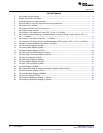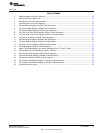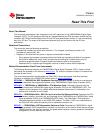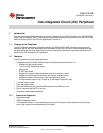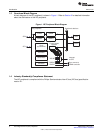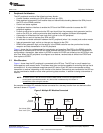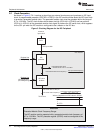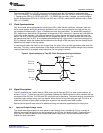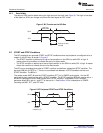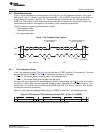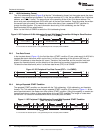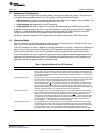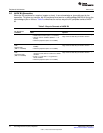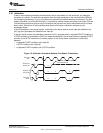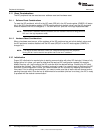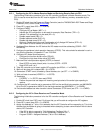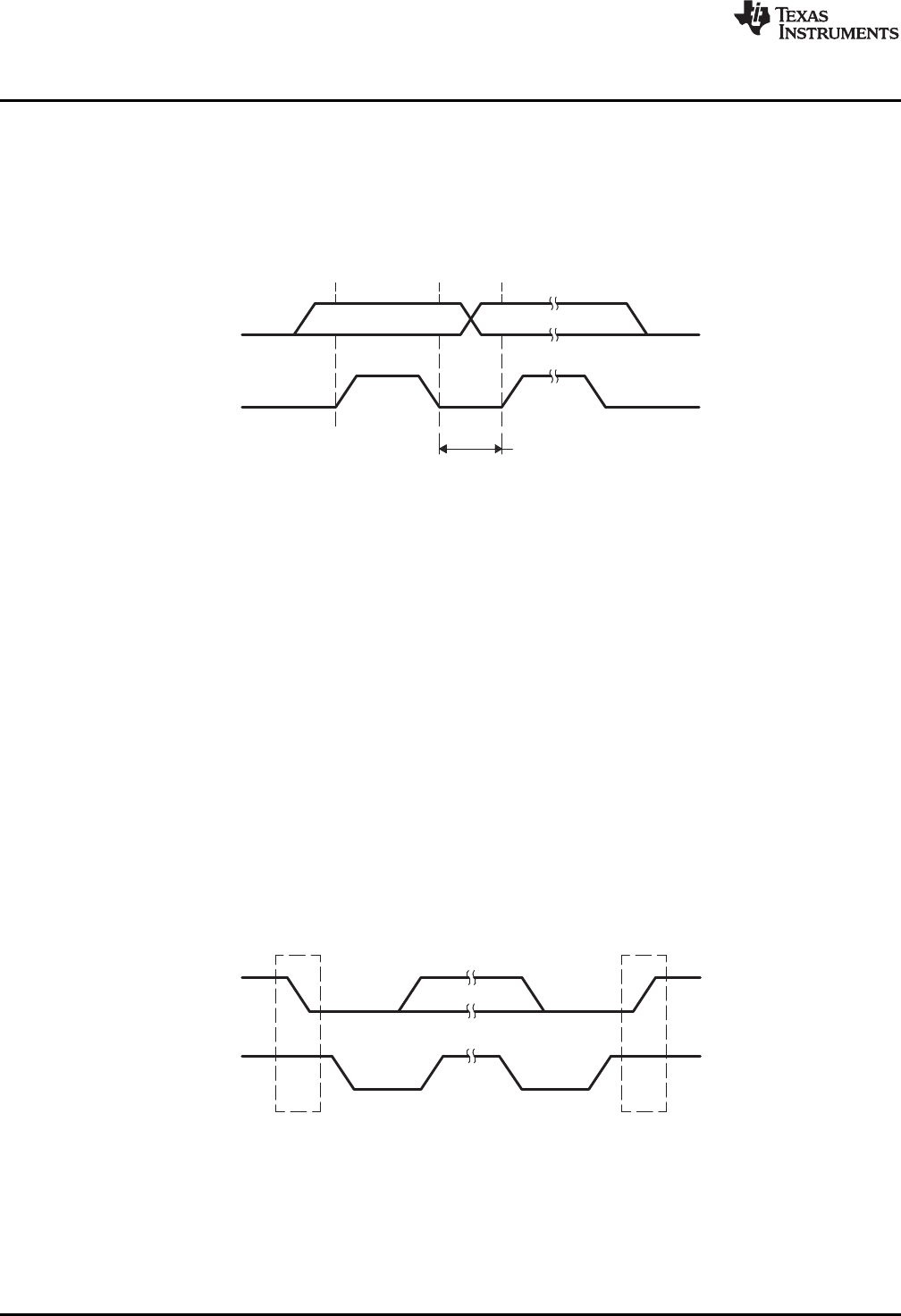
Data line
stable data
Change of data
allowed
SDA
SCL
SDA
SCL
START
condition (S)
condition (P)
STOP
Peripheral Architecture
www.ti.com
2.4.2 Data Validity
The data on SDA must be stable during the high period of the clock (see Figure 5). The high or low state
of the data line, SDA, can change only when the clock signal on SCL is low.
Figure 5. Bit Transfer on the I2C-Bus
2.5 START and STOP Conditions
The I2C peripheral can generate START and STOP conditions when the peripheral is configured to be a
master on the I2C-bus, as shown in Figure 6:
• The START condition is defined as a high-to-low transition on the SDA line while SCL is high. A
master drives this condition to indicate the start of a data transfer.
• The STOP condition is defined as a low-to-high transition on the SDA line while SCL is high. A master
drives this condition to indicate the end of a data transfer.
The I2C-bus is considered busy after a START condition and before a subsequent STOP condition. The
bus busy (BB) bit of ICSTR is 1. The bus is considered free between a STOP condition and the next
START condition. The BB is 0.
The master mode (MST) bit and the START condition (STT) bit in ICMDR must both be 1 for the I2C
peripheral to start a data transfer with a START condition. The STOP condition (STP) bit must be set to 1
for the I2C peripheral to end a data transfer with a STOP condition. A repeated START condition
generates when BB is set to 1 and STT is also set to 1. See Section 3.9 for a description of ICMDR
(including the MST, STT, and STP bits).
Figure 6. I2C Peripheral START and STOP Conditions
12
Inter-Integrated Circuit (I2C) Peripheral SPRUEN0D–March 2011
Submit Documentation Feedback
© 2011, Texas Instruments Incorporated



